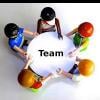Related Content
 |
How Agile Principles Help in a Remote Working Atmosphere When working remotely, teams often face high risks due to lack of communication and differences. However, when implementing agile principles, even remote teams can minimize the risks of failure. |
|
 |
The New Need for the Act of Balancing Prioritization is a skill that helps determine when and where to balance, both professionally and personally. Balancing is important when we prioritize our choices. In fact, these two attributes are so closely tied that it is important to balance our priorities and prioritize our balance. |
|
 |
Test Teams Evaluation to Improve Effectiveness Evaluating a test team member’s abilities is crucial in recognizing deficiencies within the team, and it provides an opportunity to outline a strategy to remedy the weaknesses. Selecting the proper method for evaluating the test team’s abilities is vital. |
|
 |
How to Run a Productive and Effective Remote Team With remote work becoming the norm, now is a good time to consider how you can help your team do their best without causing burnout. Fortunately, remote work may actually improve productivity. After all, it's one of the factors that largely contribute to job satisfaction. |
|
 |
Schedule Risk Analysis Building schedules for complex projects is challenging. While the results are never perfect, credible schedules are a useful communication and coordination device. Incredible schedules are a dangerous waste of time and energy that damage a project manager’s credibility and cost an enterprise a fortune. |
|
 |
Evaluating Team Health in Agile and DevOps The importance of the human element in delivering great software is sometimes overlooked, as is the relationship between team health and team performance. Just like physical health checks, team checkups are important. Let's look at some factors that can affect team health and how you can evaluate the important metrics. |
|
 |
Making the Most of Your DevOps: A Slack Takeover with Gene Gotimer Thought leaders from the software community are taking over the TechWell Hub to answer questions and engage in conversations. Gene Gotimer, a senior architect at Coveros, hosted this Slack takeover and discussed all things DevOps, including whether you can have DevOps without agile and how you can reap all its benefits. |
|
 |
3 Ways Leaders Can Change a Blame Culture If your organization has a blame culture, team members get discouraged and mistrust leaders. It focuses on pointing fingers, not coming up with solutions to move forward. To increase trust, inspire creativity, and nurture a generative culture with your team, here are three things leaders can do instead of placing blame. |








